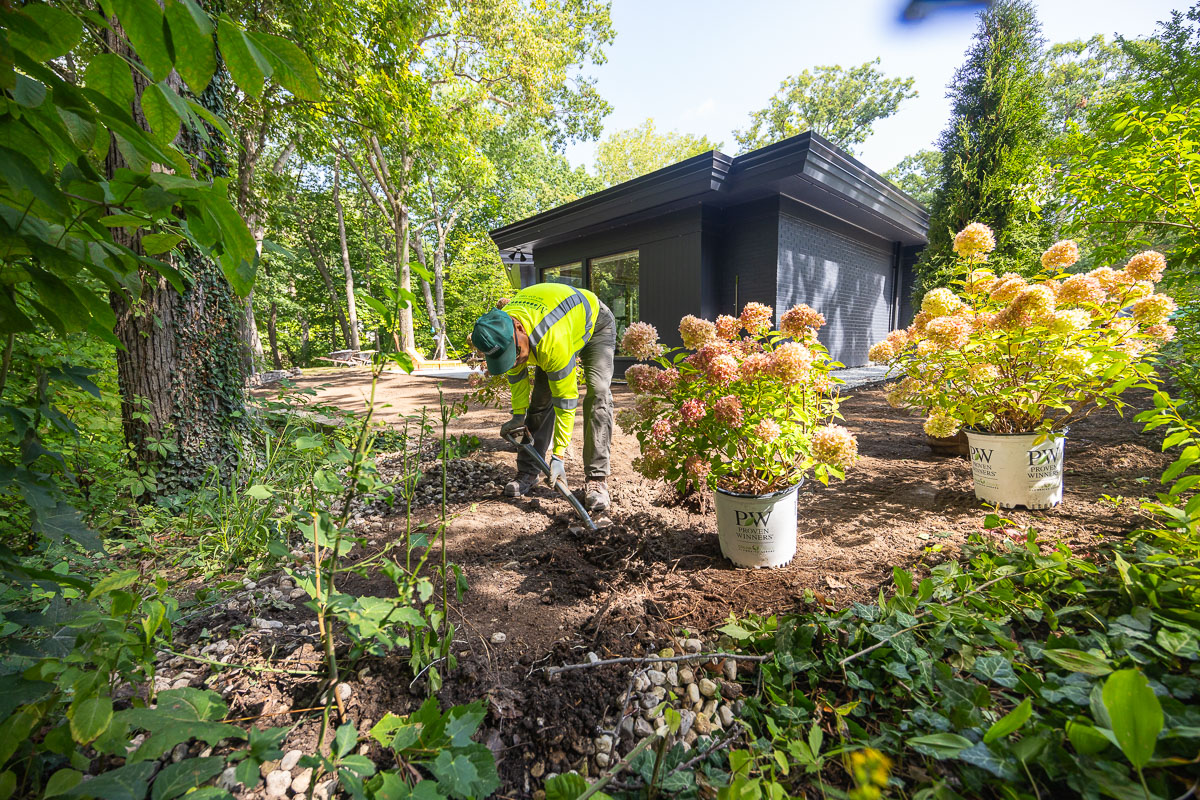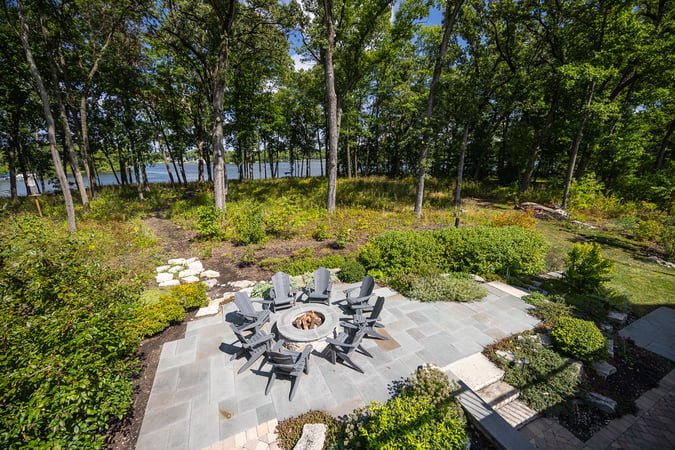
Combining Lean Management with Sustainability

Every time the landscape crews of James Martin Associates travel to a property, they consider the waste they’re creating.
“Instead of branches, grass, sod, small logs, and other yard waste going to the landfill, we recycle as much of it as possible,” said Jim Martin, President.
This sustainability-focused practice was implemented in 2003 when the company sought to integrate lean management practices with green initiatives. These green initiatives include recycling yard waste.
When the yard waste materials generated from project sites come into the JMA facility, the materials are separated, mechanically ground, screened, and turned into an organic mulch.
“We process and grind 3,000-4,000 yards of waste annually, which creates over 1,500 yards of rich, organic mulch,” said John Weiler, Yard and Material Purchasing Manager.
This mulch is used as a soil amendment in new landscape plantings and as a mulch for site shrub and flower beds. Use of this rich organic mulch helps prevent weed growth, retain moisture, and add curb appeal to the landscape. Since it is recycled, it has a net reduced carbon impact when compared to shredded hardwood bark.
JMA also recycles old concrete and stone scraps from project removals and demolitions. Instead of sending these materials to a landfill, JMA crushes these materials into a small size similar to gravel which is then used for sub-bases under patios, driveways and other landscape hardscapes.

Finally, metal scraps, wooden pallets, and plastic materials are taken to the recycling plant where they are broken down to be reused.
Since 2004, James Martin Associates estimates a reduction of 30,000 cubic yards of landscape waste being hauled to landfills, resulting in a decrease of fuel consumption and carbon dioxide emissions of 213,400 pounds.
“It’s a win-win for our bottom line and for the environment,” said Martin.
Learn more about JMA’s recycling practices and green initiatives.

Heidi Seibert
